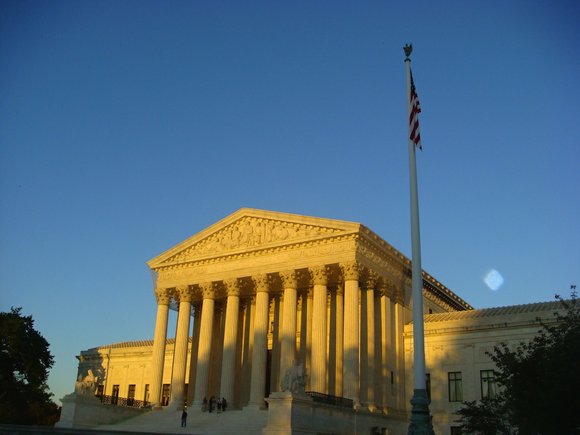Democrats Put Hope in SCOTUS As They Race Against the 2020 Redistricting Clock
CNN/Stylemagazine.com Newswire | 10/3/2017, 6:28 a.m.
By Eric Bradner, CNN
(CNN) -- Democrats have launched groups, funded legal battles and thrown money at state parties in an effort to keep the disastrous redistricting of 2010 that all but guaranteed a Republican-controlled House for the next decade from happening again.
Now, they are putting their hopes in the Supreme Court, which will hear a case Tuesday that was originally brought by Wisconsin Democrats who complain that the legislative maps in their state were unconstitutionally drawn to benefit Republicans.
Democrats hope that the nation's high court will set guidelines that would bar an overreliance on politics in the map-making process. Such a ruling could fundamentally shift American politics -- particularly for Democrats, whose urban and minority voters tend to live in clusters that make it easier to drawn them into the same districts.
The stakes are high: Right now, Democrats are the majority party in just 31 of the nation's 98 partisan state legislative chambers.
If the Supreme Court sets guidelines to prohibit partisanship from being used to draw district lines, it would put "10 to 12 more chambers in immediate play" in six or seven states, said Jessica Post, the executive director of the Democratic Legislative Campaign Committee.
Winning control of those state-level chambers means Democrats would also play a role in drawing congressional maps there.
"We still have a shot on the current map, but if we have fair maps, we could see real progress," Post said.
The Wisconsin case, Gill v. Whitford, is the first of several legal battles working through the courts right now that Democrats hope will curb partisan and racial gerrymandering. Ongoing battles in North Carolina, Texas and Virginia are focused on race.
On Tuesday, the Eric Holder-led National Democratic Redistricting Committee, launched in the wake of 2016's election, is expected to file a lawsuit on behalf of residents of Georgia over legislative maps that lawmakers there redrew in 2015 to shore up the Atlanta suburbs for Republican incumbents.
"As Democrats and grassroots activists refocus their efforts on state and local elections, one thing is abundantly clear: if we want to fix our broken political system, we need to start by fixing the way we draw electoral maps. That fight starts now," Holder said.
The court battles are at the forefront of Democrats' bid to win back the nearly 1,000 state legislative seats the party lost during Barack Obama's presidency -- a blow that Obama himself is now attempting to help reverse by raising money for the redistricting group.
The heightened Democratic focus on state legislatures will be tested this fall in Virginia, where the party will try to chip away at the GOP's nearly 2-to-1 state assembly majority, and Nevada, where Republicans are pushing to recall several sitting Democrats in a bid to change party control of the state Senate.
The Nevada effort is particularly concerning to national Democrats who fret that the GOP could use similar tactics in other states.
In addition to its regular monthly $10,000 contributions to each state party, the DNC sent a six-figure sum and the Holder-led group sent $50,000 to the new group Our Votes, Our Voice, which is leading a campaign urging voters to decline to sign the recall petitions.
Donors are also paying closer attention to the state-level battles. Post said the DLCC's online fundraising is up 450% compared to this point in 2015, while a spokesman for the Democratic Governors Association said the group is receiving contributions this year from major donors who previously have ignored or only contributed small amounts to state races.
Buoying Democrats as they attempt to refocus the party's donors and activists on down-ballot races is that -- while whiffing in congressional special elections -- Democrats have flipped eight state legislative seats this year.
"Republicans have worked for years to rig the system with partisan gerrymandering and restrictive voting laws designed to keep African Americans, Latinos, and young people away on Election Day," said Tom Perez, the DNC chairman.
"Democrats believe that voters should get to choose their representatives, not the other way around," Perez said in an emailed statement. "We believe that America is stronger when more people, not fewer, participate on Election Day. And as Republicans try to silence people's voices and limit one of our most fundamental rights, Democrats will continue fighting for the equal voice every voter deserves."







